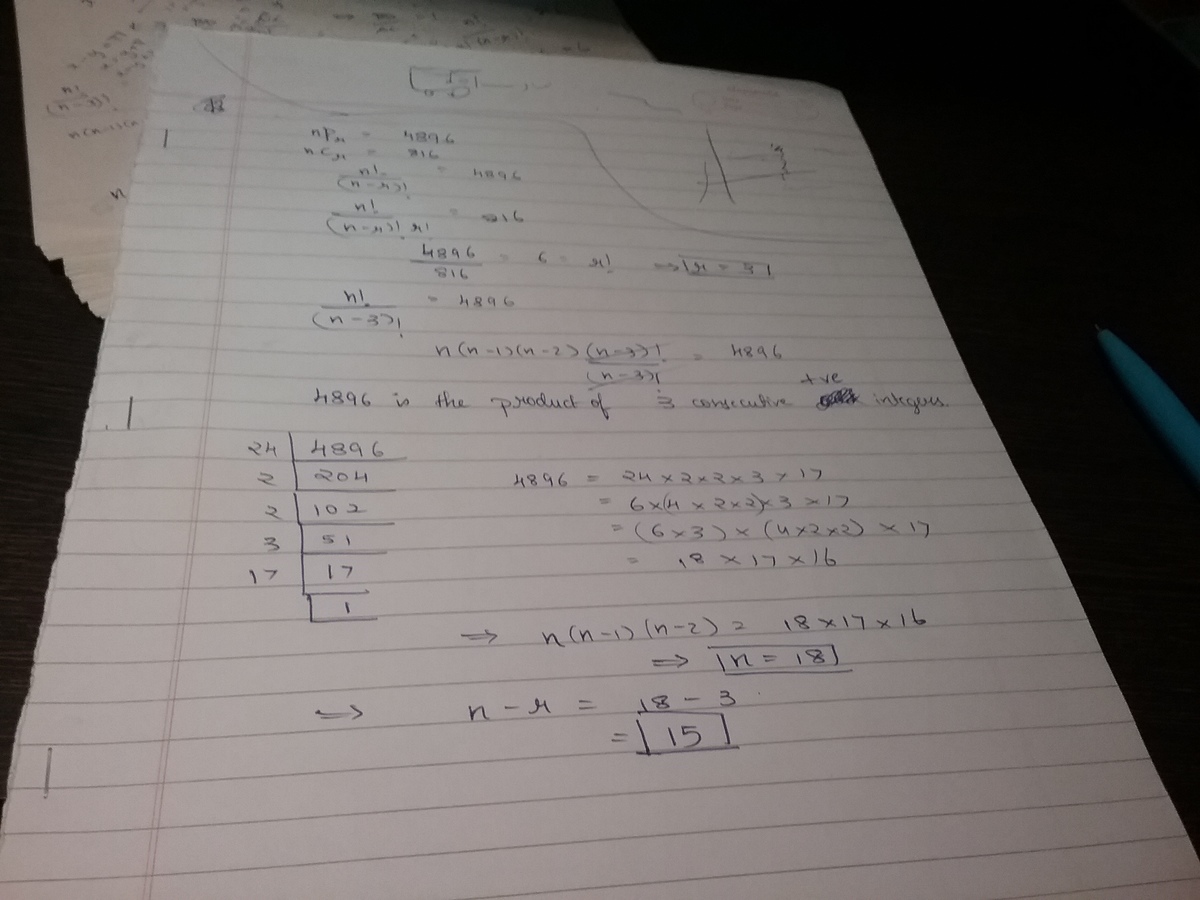n P r n C r
n P r = 4 8 9 6 n C r = 8 1 6
What's the value of ( n − r ) ??
The answer is 15.
This section requires Javascript.
You are seeing this because something didn't load right. We suggest you, (a) try
refreshing the page, (b) enabling javascript if it is disabled on your browser and,
finally, (c)
loading the
non-javascript version of this page
. We're sorry about the hassle.
2 solutions
No need to solve that cubic equation... just factorise 4896... we get 18×17×16...
Hence 18 is the value of n
Log in to reply
But how could you know 4 8 9 6 = 1 8 ⋅ 1 7 ⋅ 1 8 at first?
Log in to reply
Easy...I'll post it as a solution...you can see it there...

@Md Mehedi Hasan , looking at 4896, we must get to now that it's divisible by 24... after that things are easy...
Or even 48 is fine, but to my head, 24 struck before 48...so I used 24...nothing wrong with 48...
well, here you have to find the divisor. It's also a good process. But you can solve cubic equation with calculator.
Log in to reply
Bro... Always try to stay away from calculator unless and until it's absolutely necessary... For engineering level use of calc is fine but for problems of these kind, calc is not at all necessary. Mental calculations are better... and more effective than the use of a calculator.
And it's nothing like a treasure hunt to find the divisor... where so many obstacles are there, well all I mean to say is that it's an easier and better way to do this than using a calc
Here, n C r = 8 1 6
And n P r = r ! × n C r = 4 8 9 6 ⇒ r ! = 8 1 6 4 8 9 6 = 6 = 3 ! ∴ r = 3
Again n P r = ( n − r ) ! n ! = ( n − 3 ) ! n ! = 4 8 9 6 ⇒ n ( n − 1 ) ( n − 2 ) = 4 8 9 6 ⇒ n 3 − 3 n 2 + 2 n − 4 8 9 6 = 0
Solving that we get n = 1 8
So, the answer is ( n − r ) = 1 8 − 3 = 1 5